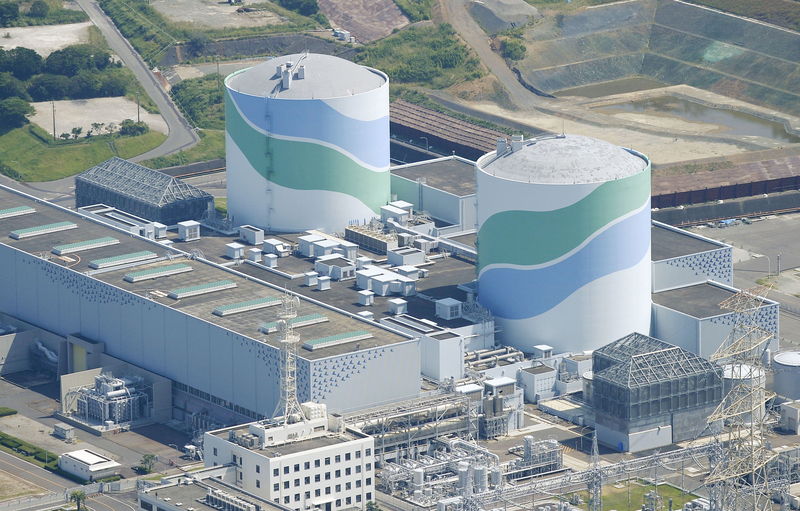By Aaron Sheldrick and Issei Kato
TOKYO/SATSUMASENDAI (Reuters) - Japan switched on a nuclear reactor for the first time in nearly two years on Tuesday, as Prime Minister Shinzo Abe seeks to reassure a nervous public that tougher standards mean the sector is now safe after the Fukushima disaster in 2011.
Abe and much of Japanese industry want reactors to be restarted to cut fuel imports, but opinion polls show a majority of the public oppose the move after the nuclear crisis triggered by the earthquake and tsunami in March 2011.
In the worst nuclear disaster since Chernobyl 25 years earlier, the meltdowns at the Fukushima Daiichi plant caused a release of radioactive material and forced 160,000 from their homes, with many never to return.
The crisis transfixed the world as the government and the Fukushima operator, Tokyo Electric Power (9501) (Tepco), fumbled their response and took two months to confirm that the reactors had undergone meltdowns.
Kyushu Electric Power (T:9508) began the restart of the No. 1 reactor at its Sendai plant at about 0130 GMT on Tuesday, a spokesman said. The reactor will take about 12 hours to go critical and a few days to reach full power, the company has said.
The plant on the west coast of Kyushu island is the furthest away of Japan's reactors from Tokyo, where protesters regularly gather outside Abe's official residence to oppose atomic energy.
At nearly 1,000 km (600 miles) from the capital, Sendai is closer to Shanghai or Seoul.
A successful restart would mark the culmination of a process whereby reactors had to be relicensed, refitted and vetted under tougher standards that were introduced following the disaster.
While two reactors were allowed to restart for one fueling cycle under the old standards in 2012, the whole sector has been shut down since September 2013, forcing Japan to import record amounts of expensive liquefied natural gas.
As well as cutting energy costs, showing it can reboot the industry safely is crucial for Abe's plans to export nuclear technology, said Malcolm Grimston, a senior research fellow at Imperial College in London.
"Japan also has to rehabilitate itself with the rest of the world's nuclear industry," said Grimston.
The head of Japan's atomic watchdog said that the new safety regime meant a repeat of the Fukushima disaster would not happen, but protesters outside the Sendai plant are not convinced.
"You will need to change where you evacuate to depending on the direction of the wind. The current evacuation plan is nonsense," said Shouhei Nomura, a 79-year-old former worker at a nuclear plant equipment maker, who now opposes atomic energy and is living in a protest camp near the plant.
Of Japan's 25 reactors at 15 plants for which operators have applied for permission to restart, only five at three plants have been cleared for restart.
(With additional reporting by Yuka Obayashi; Editing by Ed Davies)
